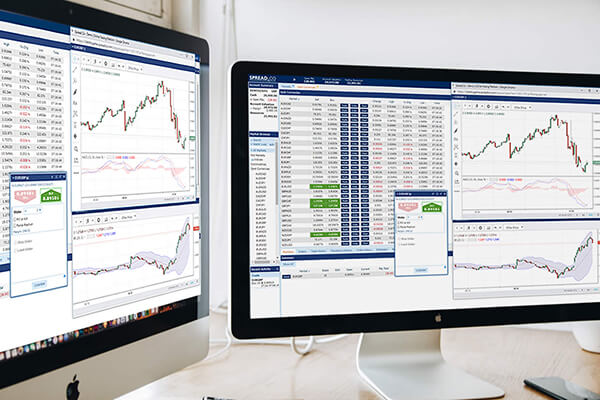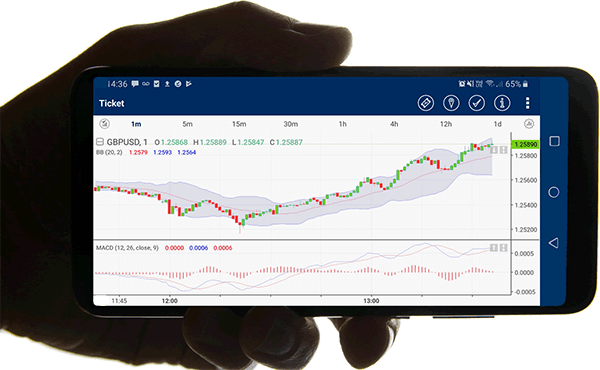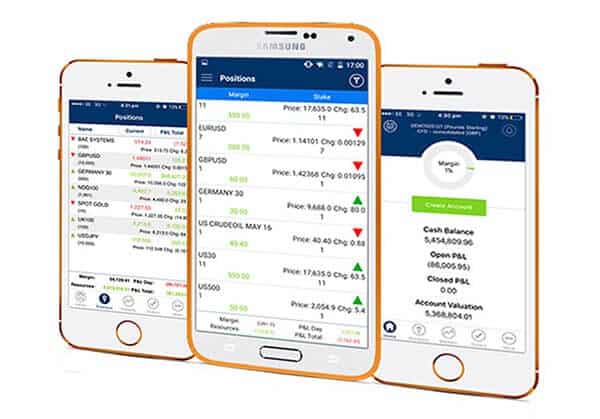Spread Betting and CFDs are complex instruments and come with a high risk of losing money rapidly due to leverage. 71.8% of retail investor accounts lose money when trading Spread Betting and CFDs with this provider. You should consider whether you understand how Spread Betting and CFDs work and whether you can afford to take the high risk of losing your money
Is CFD Trading for Me?
If you’re considering CFD trading and need some guidance, this concise guide will assist you in determining if it’s the right choice for you.
CFDs, also known as Contracts for Difference, are advanced financial instruments that fall under the category of derivative products. They provide the opportunity to speculate on the price movements of shares, commodities, indices, or currencies.
It’s important to note that CFDs carry a higher level of risk compared to traditional share dealing accounts. However, by acquiring market knowledge and utilising the risk management tools available at Spread Co, you can leverage CFDs to access a wide range of investment opportunities.
To learn more about the risk management features provided by Spread Co, we encourage you to explore further and discover how these tools can enhance your CFD trading experience.
Start Trading Now
Free Demo Account


CFD trading
CFD trading shares similarities with Spread Betting, although there may be notable tax distinctions. It’s important to note that profits may be subject to Capital Gains Tax, but you may be able to offset losses incurred elsewhere against this liability (tax treatment and rules may vary, so please seek independent tax advice for personal tax advice).
The fundamental principles of CFD trading are akin to spread betting. You have the ability to trade various assets such as equities, indices, currencies, and commodities. The key advantage lies in the fact that you only need to commit a fraction of the full trade value as your initial outlay. However, it’s important to make sure you only trade using funds you can afford to lose. This is part of having a clearly defined approach to the risks involved with CFD trading.
Hedging with CFDs
Hedging is a strategy that allows you to mitigate potential losses on your investments in the event of their decline in value. Some investors in the equity market now employ CFDs for hedging purposes to safeguard their share portfolios.
Let’s consider an example: Suppose you have purchased 1,000 shares of HSBC at a price of £5 per share. If the share price increases, you will generate a profit upon selling, but if the price decreases, you will experience a loss. To mitigate this risk, you decide to sell 1,000 HSBC CFDs. If the share price drops to £4.50, you will incur a loss on the share transaction. However, when you close your CFD trade, this will offset a significant portion of your loss, taking into account any applicable commission charges or overnight financing costs.

CFD trading or buying shares
CFD trading offers several advantages compared to buying shares. These include:
- No stamp duty1 : When you engage in CFD trading, you may be exempt from paying stamp duty on your transactions, which can result in significant cost savings.
- Ability to go long or short: Unlike share investing, where you can only profit from a rising share price, CFD trading allows you to speculate and trade on both upward and downward price movements. Get it right, and you can potentially earn profit. But if you get it wrong and the market moves against you, and this could result in a loss. This flexibility enables you to take advantage of various market conditions, whether rising or falling.
- Lower cost of entry: CFD trading requires only a fraction of the full value of the trade as your initial outlay. This allows you to gain exposure to larger positions with less capital. However, it’s important to note that while your initial investment may be smaller, the potential loss can be larger, so risk management is crucial. It’s also important to note that unlike with traditional share trading, CFD trading will not give you ownership in the underlying asset (since you are speculating on the price movements, rather than buying a stake in the underlying company).
CFD trading with other assets
CFD trading offers access to a wide range of markets beyond just shares. This includes global indices, currencies, and commodities like gold and crude oil.
For experienced traders, the advantages of trading on margin are well-known. By leveraging this benefit and utilising Spread Co’s user-friendly mobile, tablet, and web trading platforms, the case for switching to CFDs becomes even more compelling. These platforms provide powerful tools and convenient access to seize trading opportunities across multiple markets.

CFD trading with Spread Co
When trading CFDs with Spread Co, you can benefit from several advantages:
- Low commissions on shares: Spread Co offers competitive commission rates starting from 0.1% on shares. This means you can trade shares at a cost-effective rate.
- Only the spread on other markets: For markets other than shares, Spread Co charges only the spread, which is the difference between the buy and sell prices. This allows for transparent and straightforward trading costs.
- No overnight financing on short index positions: If you go short on indices, you won’t incur overnight financing charges. This can be advantageous when trading indices in the short term.
- Risk management features: Spread Co provides risk management tools such as Stop Loss and Limit Orders. These features allow you to set predetermined levels at which your positions will be automatically closed, helping you manage risk in fast-moving markets.
- By leveraging these advantages, you can enhance your trading experience and effectively manage your risk exposure while trading CFDs with Spread Co.
Stamp Duty, Capital Gains & Tax1
Tax treatment depends on your individual circumstances and tax laws can change or may differ in a jurisdiction other than the UK. Please seek independent tax advice for personal tax advice tailored to your circumstances.

Easy To Open An Account
Reliable Platform
With our platforms you can trade wherever you are – at home, in the office, or when you’re out and about.
0% financing on short index positions
Some companies will charge you to hold a short index position. At Spread Co we won’t.
Powerful Charting
Spread Co charts are powered by TradingView Inc.
Sign Up For A Demo Account Create A Live Account
